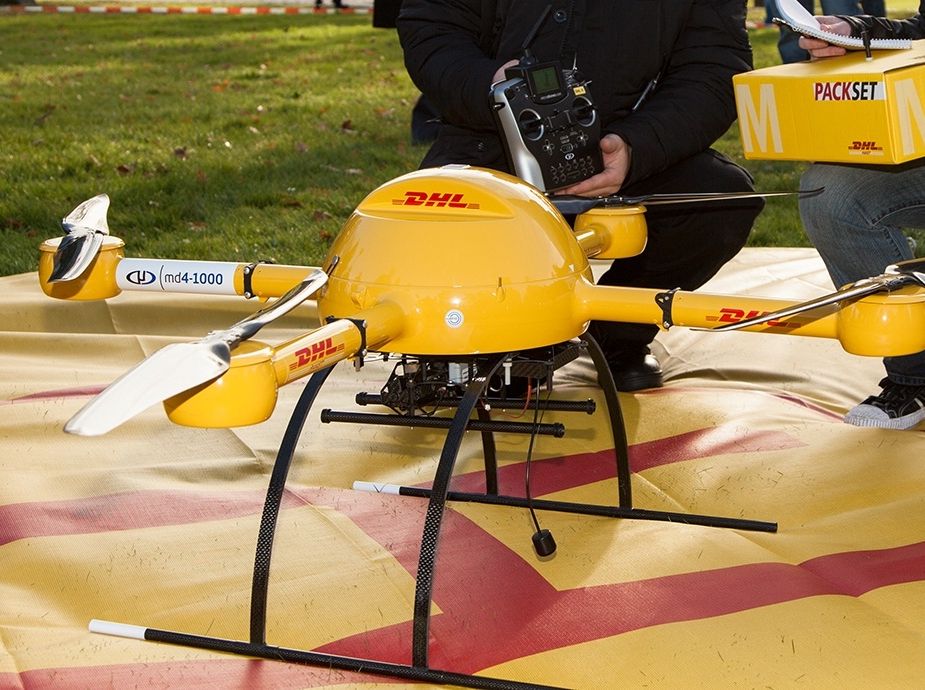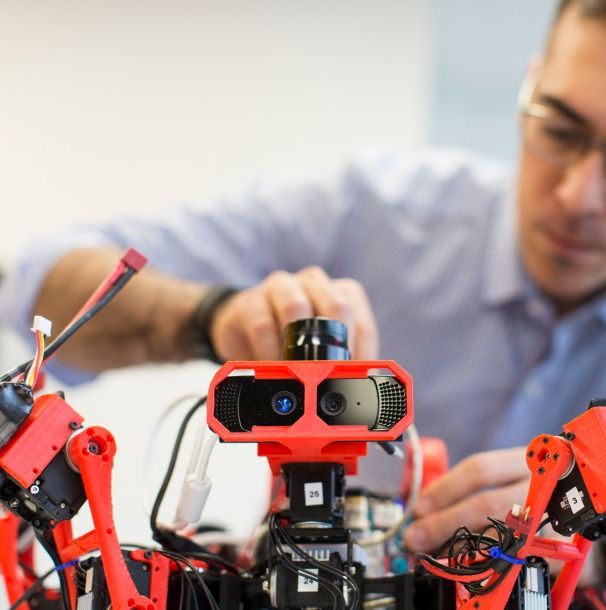Page 10942
Apr 23, 2016
Quantum computing leaps: Sydney University and UNSW as the best of frenemies
Posted by Karen Hurst in categories: computing, quantum physics
Australia is stepping it up in QC; okay US, Canada, UK, China?…
Sydney opened two quantum computing laboratories this week, but those working in them say their research is competitive collaboration.
Apr 23, 2016
Europe plans giant billion-euro quantum technologies project
Posted by Karen Hurst in categories: neuroscience, quantum physics
Nice
Third European Union flagship will be similar in size and ambition to graphene and human brain initiatives.
Apr 23, 2016
Data Compression Used to Detect Quantum Entanglement
Posted by Karen Hurst in categories: information science, particle physics, quantum physics

Interesting — data compression algorithm can be applied to detect Quantum Entanglement.
The next time you archive some files and compress them, you might think about the process a little differently. Researchers at the National University of Singapore have discovered a common compression algorithm can be used to detect quantum entanglement. What makes this discovery so interesting is that it does not rely on heavily on an assumption that the measured particles are independent and identically distributed.
Continue reading “Data Compression Used to Detect Quantum Entanglement” »
Apr 23, 2016
Google believes artificial intelligence will be bigger than virtual reality
Posted by Karen Hurst in categories: cybercrime/malcode, quantum physics, robotics/AI, virtual reality
I too believe AI could be bigger in the future once the under pinning technology and infrastructure moves to Quantum Technology so that hacking is under control and performance is where it needs to be.
When Mark Zuckerberg thinks about the future, he sees a world that’s dominated by mobile devices and virtual reality, but when Google CEO Sundar Pichai thinks about the future, all he sees is artificial intelligence. He suggested as much during Alphabet’s quarterly earnings call on Thursday, saying that mobile devices and virtual reality will dominate the immediate future, but that they’ll eventually be surpassed in importance by artificial intelligence. However, he didn’t go into detail about what this future will look like.
Artificial intelligence is nothing new at Google, but today we learned just how big a role top boss Sundar Pichai sees AI playing in our future. Answering an analyst query on Google-parent company Alphabet’s Q1 2016 earnings call about how the company is leading innovation, rather than simply adapting to changes in technology, Pichai talked about his role in projecting where Alphabet is going in the next 10 years. He gave a shout out to VR as the hot new platform, and then wrapped up his comments by saying: “In the long run, I think we will evolve in computing from a mobile-first world to an AI-first world.” Earlier in the call he cited Google’s DeepMind AlphaGo super computer defeating a human champion as an extraordinary achievement. He also said the company is investing in AI and machine learning, areas that are taking off and beginning to bear real-world benefits.
Apr 23, 2016
How Facebook plans to take over the world
Posted by Karen Hurst in category: entertainment
Maybe Zuckerberg can be the new Goldfinger in a James Bond movie:
Social network went from digital directory for college kids to communications behemoth – and it’s planning for prosperity with its global takeover.
Apr 23, 2016
Why messaging bots are a looming security threat
Posted by Karen Hurst in categories: robotics/AI, security
I almost snickered at this article because many of us have been highlighting many of the issues with AI. I am glad to see someone else also speaking up with the bigger issue with AI which is poor security due to the existing net infrastructure.
Facebook and others are all working on simplifying users’ lives with bots, but these novel interactive programs change the game in terms of security.
Apr 23, 2016
Siemens Research Team Develops Autonomous Mobile 3D Printing Spider-Bots
Posted by Karen Hurst in categories: 3D printing, business, engineering, robotics/AI
Good luck convincing business and consumers to buy your autonomous spider-bot.
There are a number of major tech-driven companies that are researching 3D printing technology at a rapid rate, but very few invest as much as time and money into additive manufacturing as Siemens does. Whether they’re building their own €21.4 million metal 3D printing facility or helping 3D printing startups with their endeavors, the global engineering company is betting big within the 3D printing industry. Now, a research team from Siemens Corporate Technology’s Princeton campus has just revealed their latest innovation, the development of autonomous mobile 3D printing devices, which are being called spider-bots.
These unique printing devices, which look like spider-like robots, were almost entirely designed and manufactured by the Siemens Corporate Technology research team. They’re engineered with an extruder similar to the type used with FDM printing, and are able to print in polylactic acid (PLA). The spider-bots are equipped with an onboard camera and a laser scanner as well, which enables them to become aware of the surrounding environment during the print job. Software-wise, they’re all programmed with a modified version of Siemens’ NX PLM software, which is their product development, engineering, and manufacturing software solution. In the near-future, the Siemens research team hopes to utilize these spider-bots within the automotive and aerospace industries.
Continue reading “Siemens Research Team Develops Autonomous Mobile 3D Printing Spider-Bots” »
Apr 23, 2016
Mom invents parent-assisted Upsee harness that enables children with disabilities to walk
Posted by Lily Graca in category: education
We’ve been saying for ages that parents are among the best problem-solvers in the world, and the story behind Upsee confirms it. When Debby Elnatan’s second son Rotem was diagnosed with cerebral palsy, an umbrella term for a group of neuromuscular movement disorders that develop before birth or early in childhood, she decided that the physical therapists’ recommendations for Rotem to remain seated for most of the day weren’t going to work for her son. She wanted her little boy to move and walk and experience the world from a different viewpoint. The rub: he needed Debby’s help… a lot of it. So she took the matter into her own hands and crafted a device that would allow him to move with her, safely encouraging independence and helping to develop his muscles. Upsee is the result of years of tinkering with Debby’s original harness design to make it more comfortable, user-friendly, and ultimately more beneficial for the children using it. The current version includes different harness colors, an adjustable hip belt for the adult, and double sandals that allow the parent to help guide their child’s feet, effectively teaching them the movements of walking. Debby estimates that the Upsee has been sold in 100 countries: think about all those kiddos who are getting the thrill of walking for the first time!
Apr 23, 2016
WTF Was That Thing Near the International Space Station?
Posted by Sean Brazell in categories: alien life, mathematics, media & arts, satellites
“The station regularly passes out of range of the Tracking and Relay Data Satellites (TDRS) used to send and receive video, voice and telemetry from the station,” a spokesperson for NASA told ValueWalk.
The only problem with this explanation, of course, is that it’s so much more boring…”
It is, of course, highly unlikely that this was some alien ship. That said, those tracking and relay stations are fixed and known locations. Also, the range and power of the ISS communication systems are well known, non-classified public domain knowledge. I suck at math, but it should only be a matter of taking the exact time and duration of this outage and comparing it to the tracking and relay station stats.
Continue reading “WTF Was That Thing Near the International Space Station?” »
















